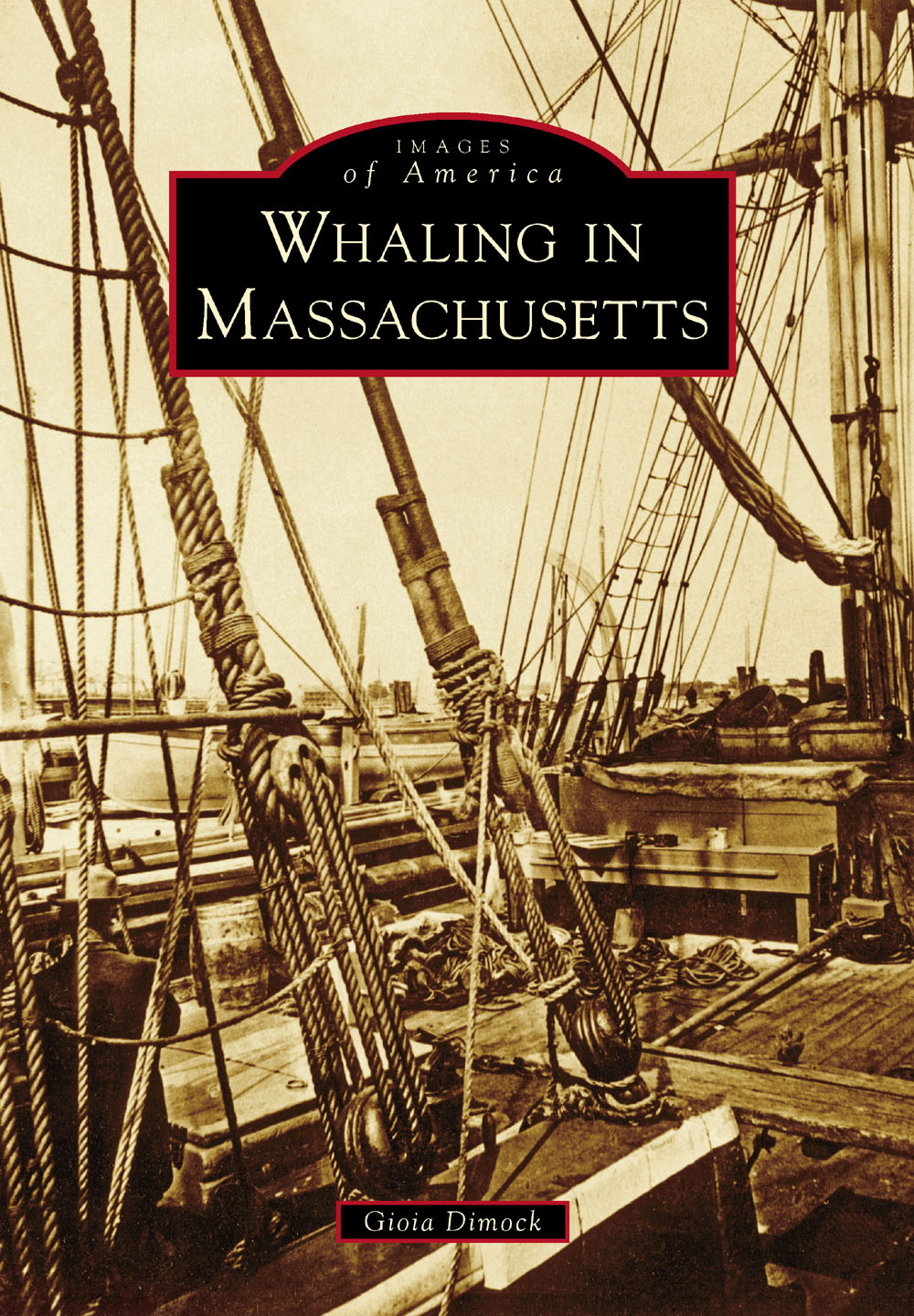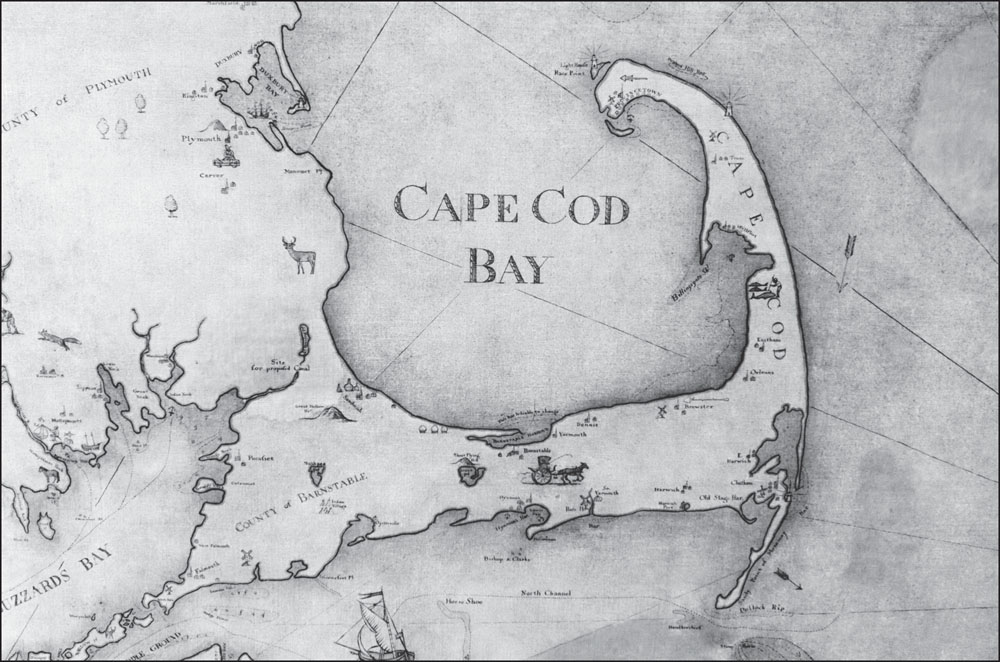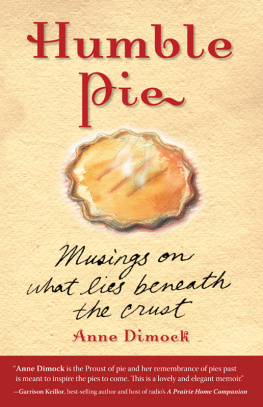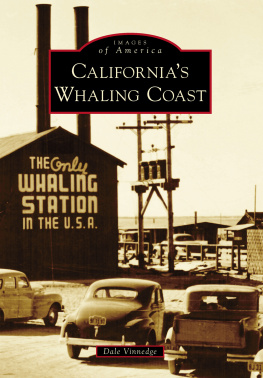Gioia Dimock - Whaling in Massachusetts
Here you can read online Gioia Dimock - Whaling in Massachusetts full text of the book (entire story) in english for free. Download pdf and epub, get meaning, cover and reviews about this ebook. year: 2017, publisher: Arcadia, genre: Home and family. Description of the work, (preface) as well as reviews are available. Best literature library LitArk.com created for fans of good reading and offers a wide selection of genres:
Romance novel
Science fiction
Adventure
Detective
Science
History
Home and family
Prose
Art
Politics
Computer
Non-fiction
Religion
Business
Children
Humor
Choose a favorite category and find really read worthwhile books. Enjoy immersion in the world of imagination, feel the emotions of the characters or learn something new for yourself, make an fascinating discovery.

- Book:Whaling in Massachusetts
- Author:
- Publisher:Arcadia
- Genre:
- Year:2017
- Rating:5 / 5
- Favourites:Add to favourites
- Your mark:
- 100
- 1
- 2
- 3
- 4
- 5
Whaling in Massachusetts: summary, description and annotation
We offer to read an annotation, description, summary or preface (depends on what the author of the book "Whaling in Massachusetts" wrote himself). If you haven't found the necessary information about the book — write in the comments, we will try to find it.
Whaling in Massachusetts — read online for free the complete book (whole text) full work
Below is the text of the book, divided by pages. System saving the place of the last page read, allows you to conveniently read the book "Whaling in Massachusetts" online for free, without having to search again every time where you left off. Put a bookmark, and you can go to the page where you finished reading at any time.
Font size:
Interval:
Bookmark:

IMAGES
of America
WHALING IN
MASSACHUSETTS

This is a partial view of a work called A Chart of the Whale Coast of New England c. 1810 by New Bedford marine artist Clifford Warren Ashley (18811947). The mural measures 6 feet high by 16 feet wide and details the coast of New England, including the north shore, Cape Cod, the Connecticut River, and the islands of Marthas Vineyard and Nantucket. Ashleyan artist, illustrator, and author known for his works centered on the whaling industrypainted the mural in 1919. (Mattapoisett Historical Society.)
ON THE COVER: The tryworks of the bark Kathleen are clearly visible as the ship sits at dock in New Bedford. Tryworks, which were used to process whale blubber into oil (commonly called trying out), made it possible for ships to take longer voyages. The crew would boil blubber in the great iron pots and then store the oil in barrels below desk. The Kathleen was stove in by a whale in 1902. (Millicent Library.)
IMAGES
of America
WHALING IN
MASSACHUSETTS
Gioia Dimock

Copyright 2017 by Gioia Dimock
ISBN 978-1-4671-1622-0
Ebook ISBN 9781439660003
Published by Arcadia Publishing
Charleston, South Carolina
Library of Congress Control Number: 2015952562
For all general information, please contact Arcadia Publishing:
Telephone 843-853-2070
Fax 843-853-0044
E-mail
For customer service and orders:
Toll-Free 1-888-313-2665
Visit us on the Internet at www.arcadiapublishing.com
This book is dedicated with love to my nieces, Sarah McNamara, for her early work at saving the whales, and her sister, Rebecca McNamara (19892000), who wrote this poem:
The ocean big and blue
The whales jump out
While the boats go through
CONTENTS
ACKNOWLEDGMENTS
The history of whaling in Massachusetts has been preserved and protected by many and is constantly being updated with new information and photographs as they come to light. I am grateful to all who take part in the preservation of this body of knowledge.
I have to thank, in particular, Jabez Howland House curator Judith McAlister for her constant and unfailing support. This book would not have been completed without her. I would also like to extend my gratitude to Bourne Archives director Jean Campbell, Bourne Archives volunteer Jan Finton (for her incredible discovery), and the historical community of Bourne in general; they are all actively supportive of a wide range of projects related to historical preservation.
Many people have contributed to this book, and foremost among them are Deborah Charpentier, archivist for the Millicent Library in Fairhaven, and Albert Benac, curator of art for the town of Fairhaven. Both have added important elements to the stories presented in this book. I also want to thank Mark Procknik, of the New Bedford Whaling Museum, for his invaluable help with research. There are many more who helped along the way: Gerald Rooney (of the Whitfield-Manjiro Society), the Nantucket Whaling Museum, the Mashpee historical community and the Wampanoag tribe, the Wareham Historical Society, the Mattapoisett Historical Society, the Eastham Historical Society, the Falmouth Historical Society, the Bourne Historical Society, and Nye Lubricants, Inc., of Fairhaven. Thanks also go to Sara Miller at Arcadia Publishing and to Dr. John Miller for his eagle-eyed editing.
I also want to thank my editor at Arcadia Publishing, Caitrin Cunningham, who prodded, poked, and pushed to get this book done. Her patience won the day.
INTRODUCTION
Whaling in Massachusetts began with local Native American tribes. They harvested whales by herding them from the ocean into shallow waters, causing them to beach themselves. This, along with the opportune finding of a beached whale, was how whaling began in the area. In the records of Plymouth Colony, Gov. William Bradford writes of seeing many whales frolicking as the Mayflower arrived in Cape Cod Bay after the Pilgrims Atlantic crossing as they reached what is now Provincetown. This abundance of whales continued for many years and was instrumental in creating the industry that sprang up along the coastline of Massachusetts.
As shore whaling progressed in the colony of Massachusetts after the arrival of the Pilgrims in 1620, the natives and Europeans would wait in small huts on the beach to watch for pods of whales just offshore and then alert groups of waiting men, who would rush to the beaches and man small double-ended whale boats to pursue them. Once the whales had been harpooned and killed, they were towed to shore for processing. The blubber was stripped off and melted down into oil in great iron pots on the shore, and as much of the whale as possible was used and harvested not only for oil but also for food. The whale bones and baleen were also used in the manufacturing of many products.
This type of whaling eventually led to ships pursuing whales during small voyages that lasted for weeks, and then months, when whalers could catch more by being out among the pods as they were sighted migrating through or feeding in the waters off Massachusetts. By the late 1700s, these journeys had become longer as the presence of offshore whales decreased, and the ships became larger and better prepared to process the leviathans at sea. Ship owners, backers, and financiers began to see the immense profits available to them from this newly emerging enterprise and bought ships and hired captains, then sent them off to sea to fill their holds with oil and whalebone.
At this point, the ships were equipped with all necessary tools for the processing of whales at sea and provisioned for voyages that could take years to fill the ship to capacity. The double-ended whaleboats were hung onboard, and there were great iron pots, called tryworks, that were built into the ship along with brick ovens for boiling down the blubber. Barrels were brought along and used to store the oil below decks, with differentiation between the boiled oil from blubber (the fat just inside the skin of the whale) and the sperm oil (taken from the head case of the sperm whale). This sperm oil, which was of a finer quality and already in liquid form, became known for making the best candles and lamp oil that was less smoky. It was also used for the lubrication of small instruments like watches or sewing machines. Oil companies, such as Nyes Oil Refinery in Fairhaven, processed the sperm oil into the finest grades of oil for use on delicate machinery. The Nye oil company is now known as Nye Lubricants, Inc., and is still in business today; however, it no longer uses the oil from whales, instead using refined petroleum.
The whaling business was built upon the knowledge and experience of the local Native Americans and commenced in earnest on the Island of Nantucket when locals invited Wampanoag tribal member Ichabod Paddock to come to the island to teach them how to hunt whales. Another Massachusetts town, New Bedford, became known for its whaling fleet along with the town of Fairhaven located across the harbor. Fairhaven started as a whaling port but became known as a port for outfitting, rigging, and provisioning the ships that sailed the seas. This townalong with Falmouth, Monument (now Bourne), Mattapoisett, Gloucester, Essex, Provincetown, Marblehead, Boston, and many others along the coasttook part in the industry in different ways, from shipbuilding to provisioning. The complementary industries that arose around the booming whaling industry included shipbuilders, coopers who made the barrels to store oil, sailmakers and rope-makers, the insurance and financial people on shore who handled the money, and the shipowners who financed the long journeys and reaped the biggest profits.
Next pageFont size:
Interval:
Bookmark:
Similar books «Whaling in Massachusetts»
Look at similar books to Whaling in Massachusetts. We have selected literature similar in name and meaning in the hope of providing readers with more options to find new, interesting, not yet read works.
Discussion, reviews of the book Whaling in Massachusetts and just readers' own opinions. Leave your comments, write what you think about the work, its meaning or the main characters. Specify what exactly you liked and what you didn't like, and why you think so.







